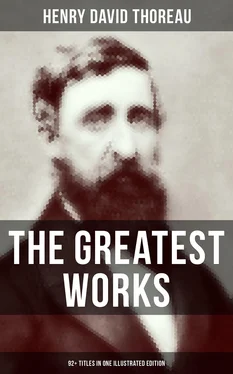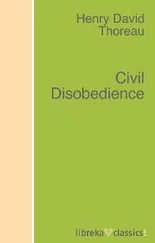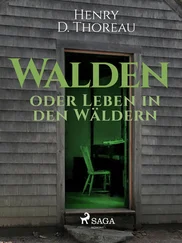Those who have not learned to read the ancient classics in the language in which they were written must have a very imperfect knowledge of the history of the human race; for it is remarkable that no transcript of them has ever been made into any modern tongue, unless our civilization itself may be regarded as such a transcript. Homer has never yet been printed in English, nor AEschylus, nor Virgil even — works as refined, as solidly done, and as beautiful almost as the morning itself; for later writers, say what we will of their genius, have rarely, if ever, equalled the elaborate beauty and finish and the lifelong and heroic literary labors of the ancients. They only talk of forgetting them who never knew them. It will be soon enough to forget them when we have the learning and the genius which will enable us to attend to and appreciate them. That age will be rich indeed when those relics which we call Classics, and the still older and more than classic but even less known Scriptures of the nations, shall have still further accumulated, when the Vaticans shall be filled with Vedas and Zendavestas and Bibles, with Homers and Dantes and Shakespeares, and all the centuries to come shall have successively deposited their trophies in the forum of the world. By such a pile we may hope to scale heaven at last.
The works of the great poets have never yet been read by mankind, for only great poets can read them. They have only been read as the multitude read the stars, at most astrologically, not astronomically. Most men have learned to read to serve a paltry convenience, as they have learned to cipher in order to keep accounts and not be cheated in trade; but of reading as a noble intellectual exercise they know little or nothing; yet this only is reading, in a high sense, not that which lulls us as a luxury and suffers the nobler faculties to sleep the while, but what we have to stand on tip-toe to read and devote our most alert and wakeful hours to.
I think that having learned our letters we should read the best that is in literature, and not be forever repeating our a-b-abs, and words of one syllable, in the fourth or fifth classes, sitting on the lowest and foremost form all our lives. Most men are satisfied if they read or hear read, and perchance have been convicted by the wisdom of one good book, the Bible, and for the rest of their lives vegetate and dissipate their faculties in what is called easy reading. There is a work in several volumes in our Circulating Library entitled “Little Reading,” which I thought referred to a town of that name which I had not been to. There are those who, like cormorants and ostriches, can digest all sorts of this, even after the fullest dinner of meats and vegetables, for they suffer nothing to be wasted. If others are the machines to provide this provender, they are the machines to read it. They read the nine thousandth tale about Zebulon and Sophronia, and how they loved as none had ever loved before, and neither did the course of their true love run smooth — at any rate, how it did run and stumble, and get up again and go on! how some poor unfortunate got up on to a steeple, who had better never have gone up as far as the belfry; and then, having needlessly got him up there, the happy novelist rings the bell for all the world to come together and hear, O dear! how he did get down again! For my part, I think that they had better metamorphose all such aspiring heroes of universal noveldom into man weather-cocks, as they used to put heroes among the constellations, and let them swing round there till they are rusty, and not come down at all to bother honest men with their pranks. The next time the novelist rings the bell I will not stir though the meeting-house burn down. “The Skip of the Tip–Toe-Hop, a Romance of the Middle Ages, by the celebrated author of ‘Tittle–Tol-Tan,’ to appear in monthly parts; a great rush; don’t all come together.” All this they read with saucer eyes, and erect and primitive curiosity, and with unwearied gizzard, whose corrugations even yet need no sharpening, just as some little four-year-old bencher his two-cent gilt-covered edition of Cinderella — without any improvement, that I can see, in the pronunciation, or accent, or emphasis, or any more skill in extracting or inserting the moral. The result is dulness of sight, a stagnation of the vital circulations, and a general deliquium and sloughing off of all the intellectual faculties. This sort of gingerbread is baked daily and more sedulously than pure wheat or rye-and-Indian in almost every oven, and finds a surer market.
The best books are not read even by those who are called good readers. What does our Concord culture amount to? There is in this town, with a very few exceptions, no taste for the best or for very good books even in English literature, whose words all can read and spell. Even the college-bred and so-called liberally educated men here and elsewhere have really little or no acquaintance with the English classics; and as for the recorded wisdom of mankind, the ancient classics and Bibles, which are accessible to all who will know of them, there are the feeblest efforts anywhere made to become acquainted with them. I know a woodchopper, of middle age, who takes a French paper, not for news as he says, for he is above that, but to “keep himself in practice,” he being a Canadian by birth; and when I ask him what he considers the best thing he can do in this world, he says, beside this, to keep up and add to his English. This is about as much as the college-bred generally do or aspire to do, and they take an English paper for the purpose. One who has just come from reading perhaps one of the best English books will find how many with whom he can converse about it? Or suppose he comes from reading a Greek or Latin classic in the original, whose praises are familiar even to the so-called illiterate; he will find nobody at all to speak to, but must keep silence about it. Indeed, there is hardly the professor in our colleges, who, if he has mastered the difficulties of the language, has proportionally mastered the difficulties of the wit and poetry of a Greek poet, and has any sympathy to impart to the alert and heroic reader; and as for the sacred Scriptures, or Bibles of mankind, who in this town can tell me even their titles? Most men do not know that any nation but the Hebrews have had a scripture. A man, any man, will go considerably out of his way to pick up a silver dollar; but here are golden words, which the wisest men of antiquity have uttered, and whose worth the wise of every succeeding age have assured us of; — and yet we learn to read only as far as Easy Reading, the primers and class-books, and when we leave school, the “Little Reading,” and story-books, which are for boys and beginners; and our reading, our conversation and thinking, are all on a very low level, worthy only of pygmies and manikins.
I aspire to be acquainted with wiser men than this our Concord soil has produced, whose names are hardly known here. Or shall I hear the name of Plato and never read his book? As if Plato were my townsman and I never saw him — my next neighbor and I never heard him speak or attended to the wisdom of his words. But how actually is it? His Dialogues, which contain what was immortal in him, lie on the next shelf, and yet I never read them. We are underbred and low-lived and illiterate; and in this respect I confess I do not make any very broad distinction between the illiterateness of my townsman who cannot read at all and the illiterateness of him who has learned to read only what is for children and feeble intellects. We should be as good as the worthies of antiquity, but partly by first knowing how good they were. We are a race of tit-men, and soar but little higher in our intellectual flights than the columns of the daily paper.
It is not all books that are as dull as their readers. There are probably words addressed to our condition exactly, which, if we could really hear and understand, would be more salutary than the morning or the spring to our lives, and possibly put a new aspect on the face of things for us. How many a man has dated a new era in his life from the reading of a book! The book exists for us, perchance, which will explain our miracles and reveal new ones. The at present unutterable things we may find somewhere uttered. These same questions that disturb and puzzle and confound us have in their turn occurred to all the wise men; not one has been omitted; and each has answered them, according to his ability, by his words and his life. Moreover, with wisdom we shall learn liberality. The solitary hired man on a farm in the outskirts of Concord, who has had his second birth and peculiar religious experience, and is driven as he believes into the silent gravity and exclusiveness by his faith, may think it is not true; but Zoroaster, thousands of years ago, travelled the same road and had the same experience; but he, being wise, knew it to be universal, and treated his neighbors accordingly, and is even said to have invented and established worship among men. Let him humbly commune with Zoroaster then, and through the liberalizing influence of all the worthies, with Jesus Christ himself, and let “our church” go by the board.
Читать дальше












